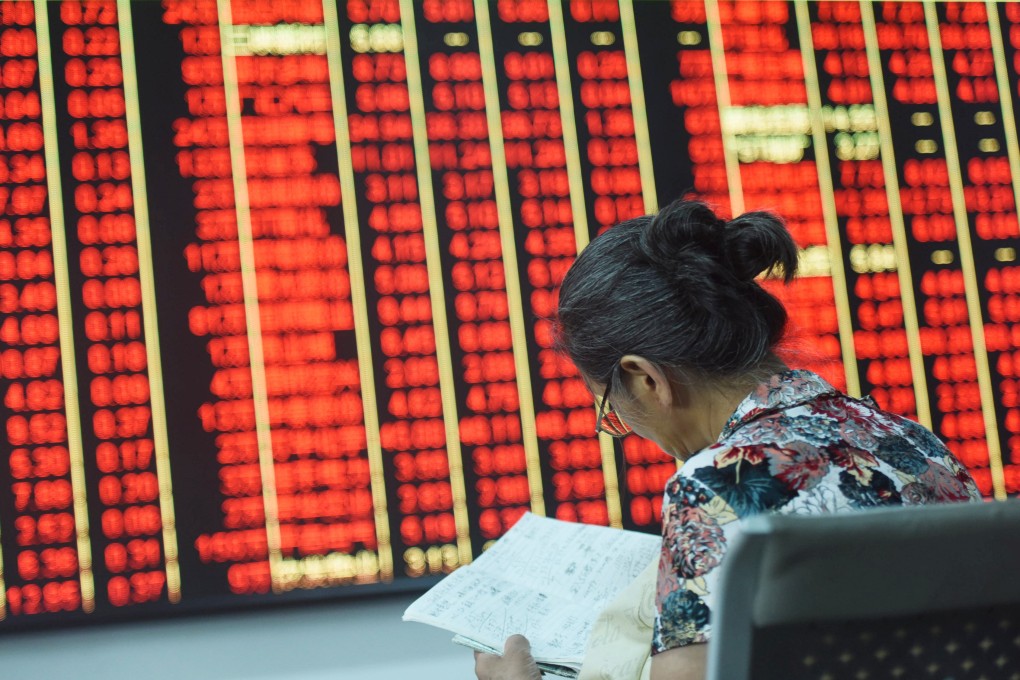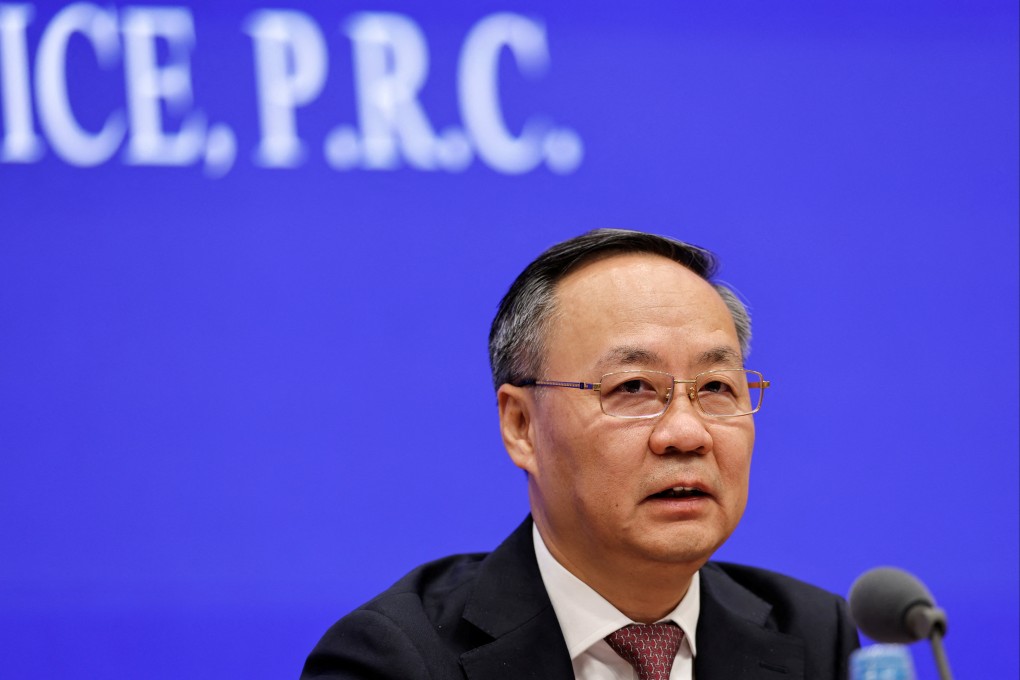My Take | Beijing’s big policy shift signals new approach to state-market ties
我的看法 | 北京的重大政策转变标志着建立国家与市场关系的新方法
Much more than a cyclical adjustment, Beijing’s latest policy shift marks a milestone in the history of its economic management
北京的最新政策转变不仅仅是一次周期性调整,而是其经济管理史上的一个里程碑
为什么您可以信任南华早报

Beijing’s larger-than-expected market rescue plan announced last week is extraordinary in every way. The policies, from interest rate cuts to special funding schemes for the stock market, are significant. But investors are particularly excited about a shift in policymaking that may have removed certain self-imposed constraints in dealing with the economy and stock market.
北京上周宣布的规模超出预期的市场救助计划在各个方面都非同寻常。从降息到股票市场的特殊融资计划,这些政策都很重要。但投资者对政策制定的转变感到特别兴奋,它可能消除了在处理经济和股市时某些自我施加的限制。
Before the shift, a big concern regarding China’s economic prospects was whether Beijing was serious in putting growth at the top of its agenda. There were fears among investors that development may have lost significance to security and order.
在这种转变之前,人们对中国经济前景的一个重大担忧是,北京是否真的将增长置于其议程的首位。投资者担心开发可能已经失去了安全和秩序的重要性。
Beijing sometimes looked indifferent when market participants pleaded for support. As late as the Politburo meeting on July 30, when deflationary pressure was obvious and Beijing’s own growth target was at risk, China’s leaders still vowed to keep “strategic focus” and a “prudent” monetary stance, implying that they were not in the mood for any meaningful supportive measures.
当市场参与者恳求支持时,北京有时显得无动于衷。直到 7 月 30 日的政治局会议,当通缩压力明显且北京自身的增长目标面临风险时,中国领导人仍然誓言要保持“战略重点”和“审慎”的货币立场,这意味着他们没有心情采取任何有意义的支持措施。
Therefore, the press conference by China’s financial regulators last Tuesday was a big surprise for many. And a bigger surprise came two days later when China’s Politburo, the supreme 24-member decision-making body, broke its own tradition to convene a special meeting on economic problems, rallying the state apparatus and the whole country to make growth a priority. The wording in the Chinese readout leaves no room for doubt that Beijing is taking economic growth seriously.
因此,中国金融监管机构上周二的新闻发布会让许多人感到非常意外。两天后,更大的惊喜出现了,中国政治局——由24名成员组成的最高决策机构——打破了自己的传统,召开了一次关于经济问题的特别会议,召集了国家机器和全国人民,将增长作为优先事项。中方简报中的措辞毫无疑问地表明,北京正在认真对待经济增长。

中国上周宣布了一系列提振经济的政策,包括支持股市的新工具。照片:SCIO
The Politburo meeting also showed that China’s top leaders are aware of the problems on the ground and are willing to face them, removing another source of anxiety for investors. For some time, China has sent confusing signals to the market, going so far as to label not-so-positive economic views and comments as unwelcome or even acts of hostility.
政治局会议还表明,中国最高领导人意识到当地的问题并愿意面对这些问题,从而消除了投资者的另一个焦虑来源。一段时间以来,中国向市场发出了令人困惑的信号,甚至将不太积极的经济观点和评论贴上了不受欢迎甚至敌对行为的标签。
China’s national security ministry threatened to go after those who dared to “short” the country’s assets through words or actions. Such warnings frightened investors away, as there’s no point going “long” if going “short” is not allowed.
中国国家安全部威胁要追究那些敢于通过言语或行动“做空”国家资产的人。这样的警告吓跑了投资者,因为如果不允许“做空”,那么“做多”就没有意义。
The Politburo statement last week, however, stated that China must face difficulties in a “straightforward” manner, an acknowledgement that the country’s economic woes are not just narrative nonsense to be rebuffed but real challenges to be tackled.
然而,上周的政治局声明表示,中国必须以“直截了当”的方式面对困难,承认该国的经济困境不仅仅是需要拒绝的叙事性胡说八道,而是需要解决的真正挑战。
Furthermore, it seems that China’s leadership has finally come to terms with the “animal sprit” of the market. It is a significant change as the Chinese state has been mistrustful of raw market forces. The government maintained a heavy hand by imposing, and then removing, policies in different sectors, trying to guide, tame and discipline market participants, thus marking it hard for the market to function.
此外,中国的领导层似乎终于接受了市场的“动物精神”。这是一个重大变化,因为中国政府一直不信任原始的市场力量。政府通过实施然后取消不同部门的政策来维持沉重的控制,试图引导、驯服和约束市场参与者,从而标志着市场难以运作。

2024 年 8 月 14 日,中国上海浦东陆家嘴金融区的电子股票显示数据。照片:彭博社
More often than not, the state and the market were not on the same page, resulting in unnecessary competition, tensions, and losses. China’s once vibrant private equity market is a typical example of how interventionist state policies and government money have elbowed out market-oriented practices and institutions.
通常情况下,国家和市场并不一致,从而导致不必要的竞争、紧张局势和损失。中国曾经充满活力的私募股权市场是干预主义国家政策和政府资金如何排挤市场导向型做法和机构的典型例子。
现在,来自政治局的信息已经大不相同了。它敦促整个中国社会采取主动,释放创造力来刺激经济增长。特别是,领导层要求规避风险的干部采取果断行动,并承诺如果他们的错误是出于善意,就会原谅他们的错误,这一立场可能会激励地方政府官员积极追求增长。
Some economists are right to note that Beijing’s latest policy package is not a silver bullet. China’s structural problems such as an ageing population and geopolitical tensions have no quick fixes, and there is still a question mark of how many trillions of yuan the finance ministry can set aside to arrest a property market slump.
一些经济学家正确地指出,北京的最新一揽子政策并不是灵丹妙药。中国的结构性问题,如人口老龄化和地缘政治紧张局势,没有快速的解决方案,财政部能拿出多少万亿元来阻止房地产市场的暴跌,仍然是一个问号。
But it should be noted Beijing’s policy shift is much more than a cyclical adjustment. The change in tone from China’s top leaders in itself marks a milestone in the history of Beijing’s economic management. China’s leadership is showing the world that it listens, cares and respects the market. This deserves applause, and that is why the market reacted so fervently.
但应该指出的是,北京的政策转变远不止是一次周期性调整。中国最高领导人的语气变化本身就标志着北京经济管理史上的一个里程碑。中国的领导作用正在向世界表明,它倾听、关心和尊重市场。这值得掌声,这也是市场反应如此热烈的原因。

Beijing encourages investment in struggling start-ups, but are big banks ready?
Beijing’s encouragement for banks to boost investment in unlisted companies is a big move in the effort to support start-ups, analysts say

Chinese authorities are now allowing the financial asset-investment arms of major commercial banks to increase their allocations to private companies, Li Yunze, director of the National Administration of Financial Regulation (NAFR), said during a briefing on Tuesday. The upper limit for investments in a single private-equity fund has been raised to 30 per cent from 20 per cent.
He said the proportion of on-balance-sheet equity investments will rise to 10 per cent from 4 per cent.
“Chinese state-owned mega banks typically aren’t involved in direct equity investments in tech start-ups,” said Li Ying, head of financial institution ratings at S&P Global (China) Ratings. “So the new policy announced [on Tuesday] is very significant,”
“By easing restrictions, [authorities are] sending a signal to the market that bank capital is going to play a more significant role in the capital markets, [especially in] mergers and acquisitions,” said Su Jinyu, an associate at Jingtian & Gongcheng, a Beijing-based law firm.
This is a “well thought-out and significant” regulatory decision, grounded in the need for financial security and stability, Su said.
So far this year, Chinese start-ups have raised US$26 billion, according to data from PitchBook. That is less than half the amount that was raised in any year over the past 10 years. For all of 2021, Chinese start-ups raised US$152.2 billion, which was a record amount.
“With nondomestic investors being highly cautious and many North American institutional investors, particularly large US LPs such as endowments and pensions, pulling back, in China, the market consensus is that state-owned or state-affiliated LPs will play an increasingly important and dominant role,” said Kaidi Gao, a venture capital analyst at PitchBook.
It is unclear whether the policy change will sufficiently incentivise banks to invest in private companies, or what risks they will be exposed to.
“Unless banks are less concerned about financial systemic risk – which we think is unlikely in recent times – it is hard to see any sizeable investment in equities as a percentage of banks’ balance sheets,” said Michael Chang, head of Asia financials at CGS International.
“This is not only because of the higher-risk nature of equities versus loans, but also due to greater pressure on capital ratios as a result of the higher risk weight of equities,” he added.
Capital ratios are a measure of how much capital a bank has relative to its risk-weighted assets. They help to indicate how well a bank can absorb potential losses.
How much greater equity investments could pressure a bank’s capital adequacy depends on the amount of money banks allocate to private companies and what risk factors are applied to those investments, Li said.
“According to the current capital rules, direct equity investment in corporate has a risk weight of 1,250 per cent, essentially [meaning that] no leverage is allowed,” she said. She noted, however, that the risk weight of an equity investment could be reduced to as low as 250 per cent if it is eligible for a government subsidy and subject to state supervision.
“How this new policy will be executed depends on the related capital rules,” she said. “It is too early to tell, given only very general guidelines have been provided.”


